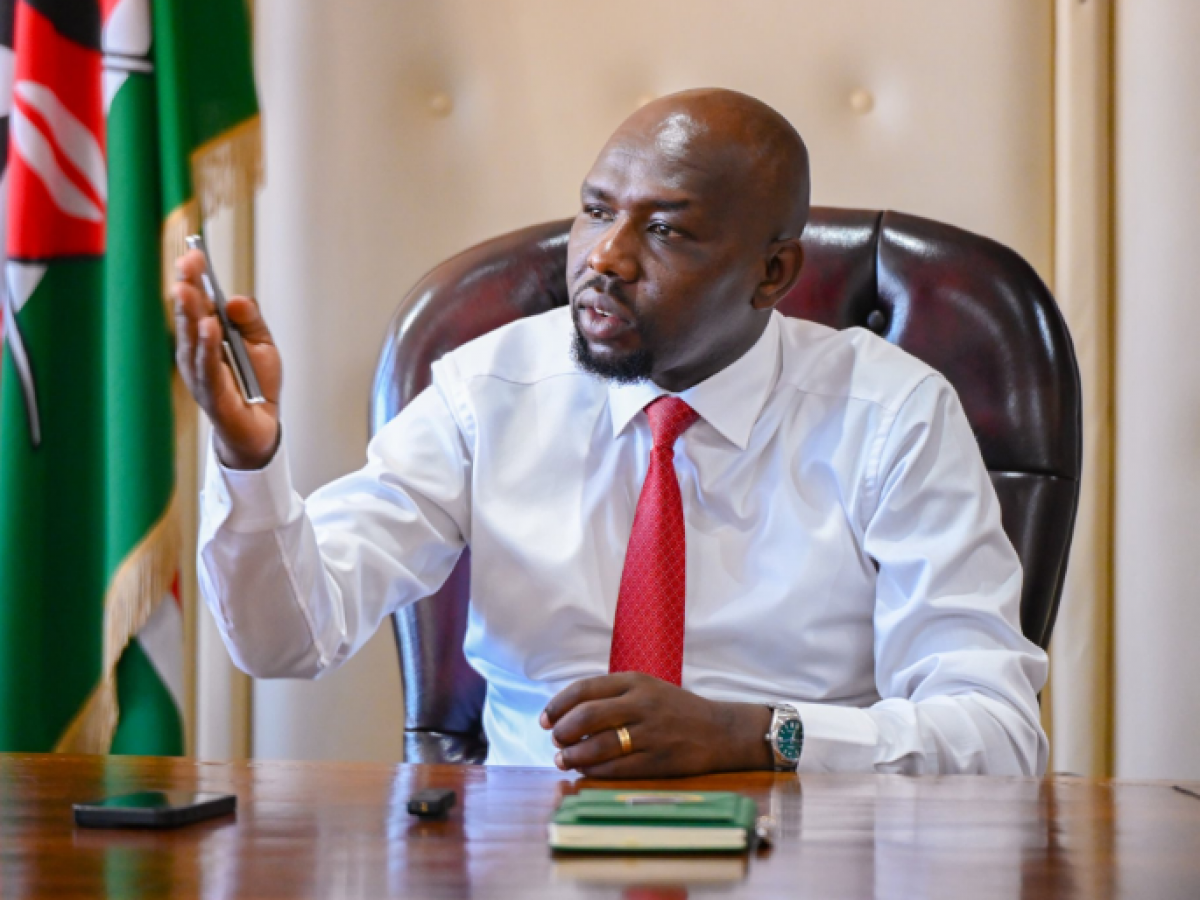In response to the tragic death of Ugandan Olympian Rebecca Cheptegei, Kenya’s Sports Cabinet Secretary Kipchumba Murkomen has unveiled a series of measures aimed at curbing the rising cases of Gender-Based Violence (GBV) in the sports sector. Cheptegei’s death, which occurred on 13 September in Bukwo District, Uganda, serves as a grim reminder of the ongoing threats that sportswomen face, prompting swift action from the Kenyan government.
“Rebecca was a devoted mother, and her passing is a heartbreaking reminder of the pervasiveness of GBV in our communities. It’s time for all of us—governments, sports officials, and society as a whole—to act and bring an end to these senseless acts,” Murkomen remarked during his emotional address at her burial.
Cheptegei’s death mirrors similar tragedies involving other prominent athletes, including Kenyan long-distance runner Agnes Tirop and Damaris Mutua, both of whom lost their lives due to gender-based violence. These high-profile cases have underscored the need for urgent intervention to protect women in sports from violence and abuse. In response, Murkomen outlined several strategies aimed at safeguarding female athletes from GBV.

1. Formation of a Multi-Agency Task Force
One of the key measures announced by Murkomen is the formation of a multi-agency task force to implement recommendations from the Sports Committee on Gender Welfare and Equity. This committee was initially established after the murder of Agnes Tirop in 2021 to investigate the prevalence of GBV in sports and propose solutions.
Murkomen committed to launching the task force within the next two weeks, stating, “As I promised during my vetting, we will officially establish this committee to begin addressing the issue head-on.” The task force will work on strengthening existing policies and creating new frameworks to tackle GBV within the sports community.
2. Women-Led Sports Camps
To foster a safer environment for female athletes, Murkomen emphasized the importance of women taking leadership roles in sports camps. He believes that having women at the helm will create an atmosphere of trust, allowing female athletes to feel comfortable sharing their concerns.
“We will ensure that all female sports camps are led by women, with male staff only in supportive roles,” Murkomen explained. By implementing this change, the government aims to create a safer and more supportive environment for female athletes, reducing the risk of abuse and exploitation.
3. Secure Camps for Junior Athletes
Murkomen also highlighted the vulnerability of young athletes, particularly those in training camps. To better protect them, he pledged to collaborate with the Ministry of Education to place junior athletes in controlled environments within primary and secondary schools.
These camps will not only focus on athletic development but will also provide education on personal safety and athletes’ rights. The goal is to prevent the exploitation of junior athletes and equip them with the knowledge and tools to report any cases of abuse.
ALSO READ
- Kenya ultimate Top Basketball Betting Sites and winning Strategies
- Kenya’s Ultimate Tennis Betting Sites and Winning Strategies
- Omala’s Lebanon Move Hits Snag Over Payment Dispute
4. Female Matrons for Travel Teams
In a bid to safeguard athletes during national and international competitions, Murkomen announced that all traveling teams must now include a female matron. This measure aims to provide a trusted figure for female athletes to confide in, should they experience any inappropriate behavior while traveling.
“No team will travel without a female matron, whether for national or international events,” Murkomen declared. The inclusion of female matrons is expected to create a safer space for athletes to report concerns without fear of retaliation or dismissal.
5. Gender Equity in Technical Teams
Murkomen also committed to ensuring gender equity within coaching and technical teams across all sports. This initiative will ensure that both male and female coaches are represented in technical teams, creating a more balanced and supportive environment for athletes.
“We will promote gender equity in coaching staff. If the head coach is male, the assistant must be female, and vice versa,” Murkomen stated. This balance aims to foster a more inclusive environment for female athletes, ensuring they receive adequate support during training and competition.
6. Toll-Free GBV Reporting Line
Lastly, Murkomen announced the establishment of a toll-free hotline in collaboration with the Ministry of Interior and Gender. This service will allow athletes to report GBV incidents anonymously, ensuring they have a safe and confidential platform to seek help.
Rebecca Cheptegei’s death, reportedly caused by her boyfriend in a dispute over property, has reignited discussions about the vulnerability of women in sports. By introducing these measures, Murkomen hopes to prevent future tragedies and create a safer, more protective environment for athletes, ensuring that no more lives are lost to gender-based violence.



